A Closing Inquiry
Hacking the Pandemic
By Beth Potier
For many UNH researchers, “lockdown” didn’t mean “shut down.” Here are some of the more colorful ways our researchers adapted their work to persist through the pandemic.
Photo by Jeremy Gasowski
It could be called the ultimate quarantine. Aliya Caldwell, a graduate student in biological sciences and technician for the Tern Conservation Program of Shoals Marine Laboratory, remained on tiny White Island off the coast of Rye, New Hampshire, for four straight months in the summer of 2020. Sharing the small lighthouse-keepers cottage with two others (a fellow technician and program manager Elizabeth Craig), Caldwell and the team agreed that creating an impenetrable bubble would best facilitate their research. Although the disconnect from the world, particularly the Black Lives Matter protests that roiled the nation, was difficult, “I felt incredibly lucky, humbled, and privileged to be safe, employed, and able to continue my research and conservation work while so many others were unable to do so,” she says. “The terns in our colony need management and monitoring regardless of the state of our public health, so we were very grateful that we could be there to provide that.”
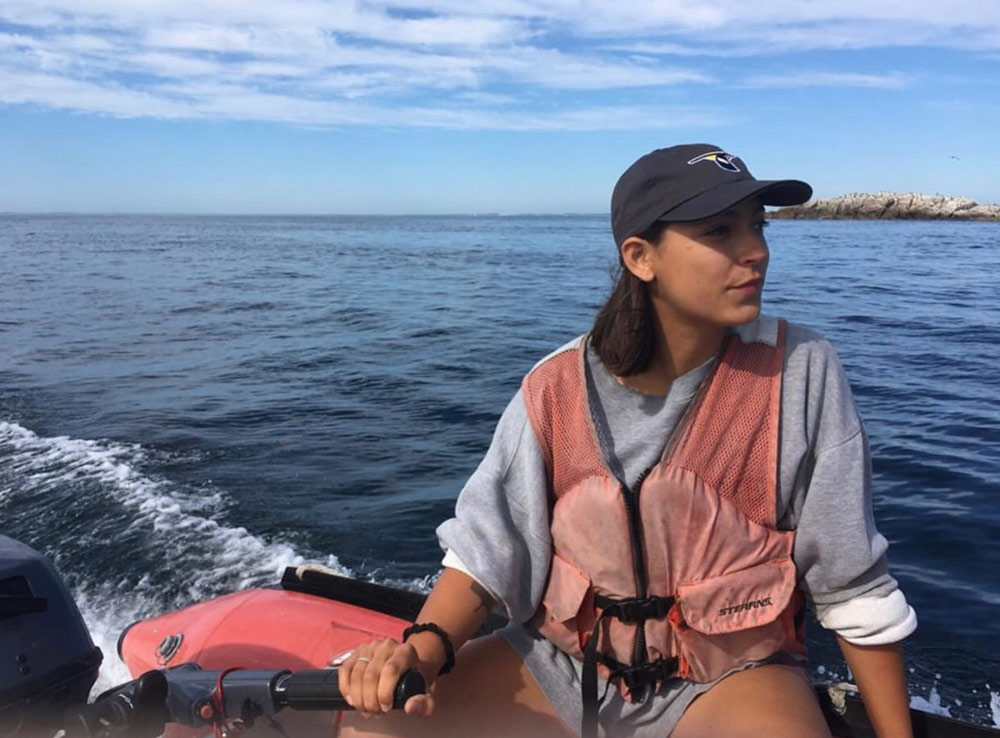
Aliya Caldwell
Photo by Tim Briggs
A scarcity of research vessels and COVID-19 restrictions didn’t stop research professor Jennifer Miksis-Olds, a marine acoustician, from deploying two acoustic observing platforms in the northern Gulf of Maine. Over three brutally cold February days, she commissioned the F/V Beast of Burden, a fishing boat out of Gloucester, Massachusetts, for the trip. “We were completely successful in our science objectives, but it was a rough ride,” she says, adding the vessel’s lack of running water was keenly felt as she endured her first-ever bout of seasickness. “But during COVID times, you take what you can get. We were very thankful for that fisherman who helped us get our research done.”
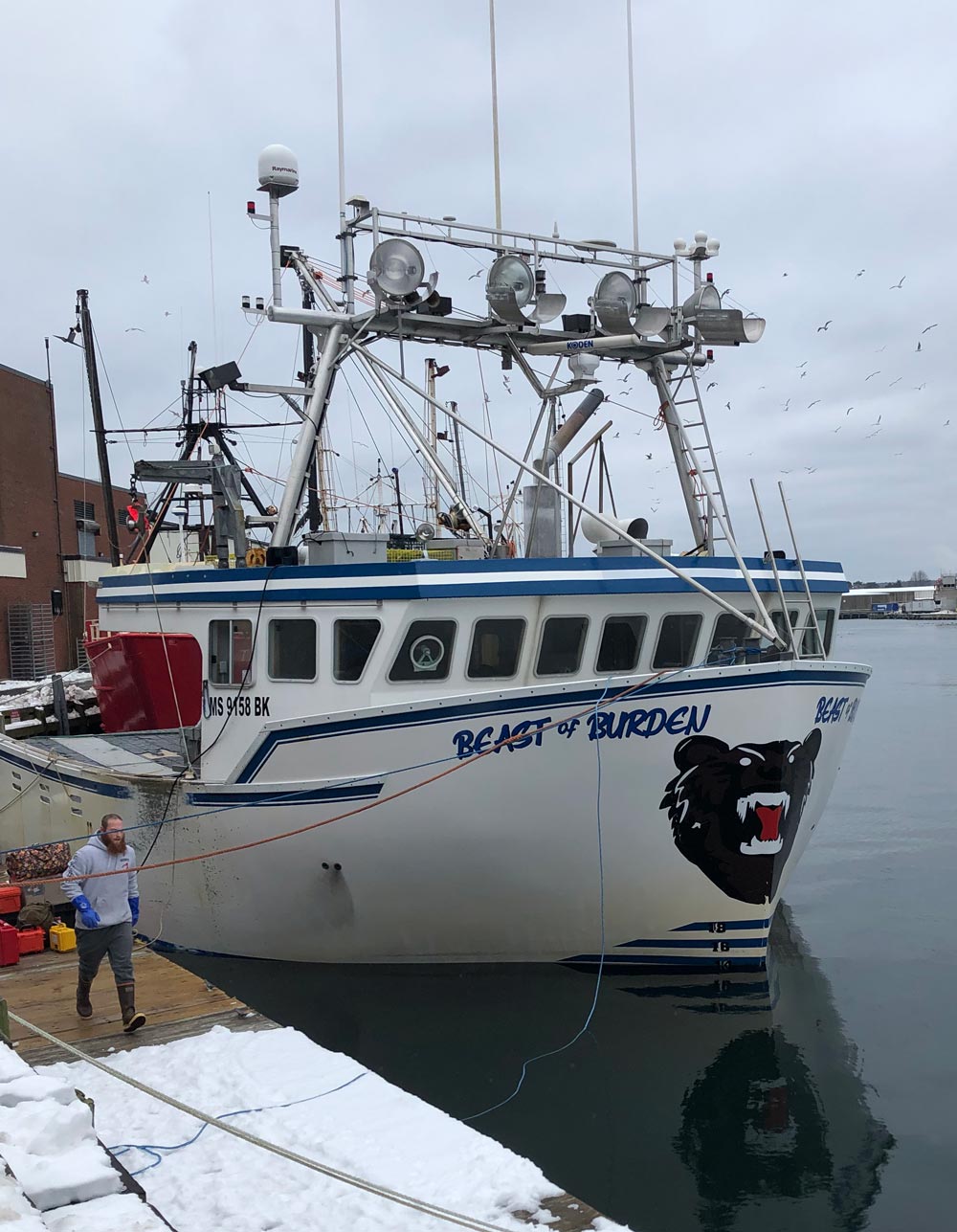
F/V Beast of Burden, the fishing boat that carried Jennifer Miksis-Olds into the Gulf of Maine for three days in February.
“We were completely successful in our science objectives, but it was a rough ride. But during COVID times, you take what you can get.”
Jennifer Miksis-Olds, research professor
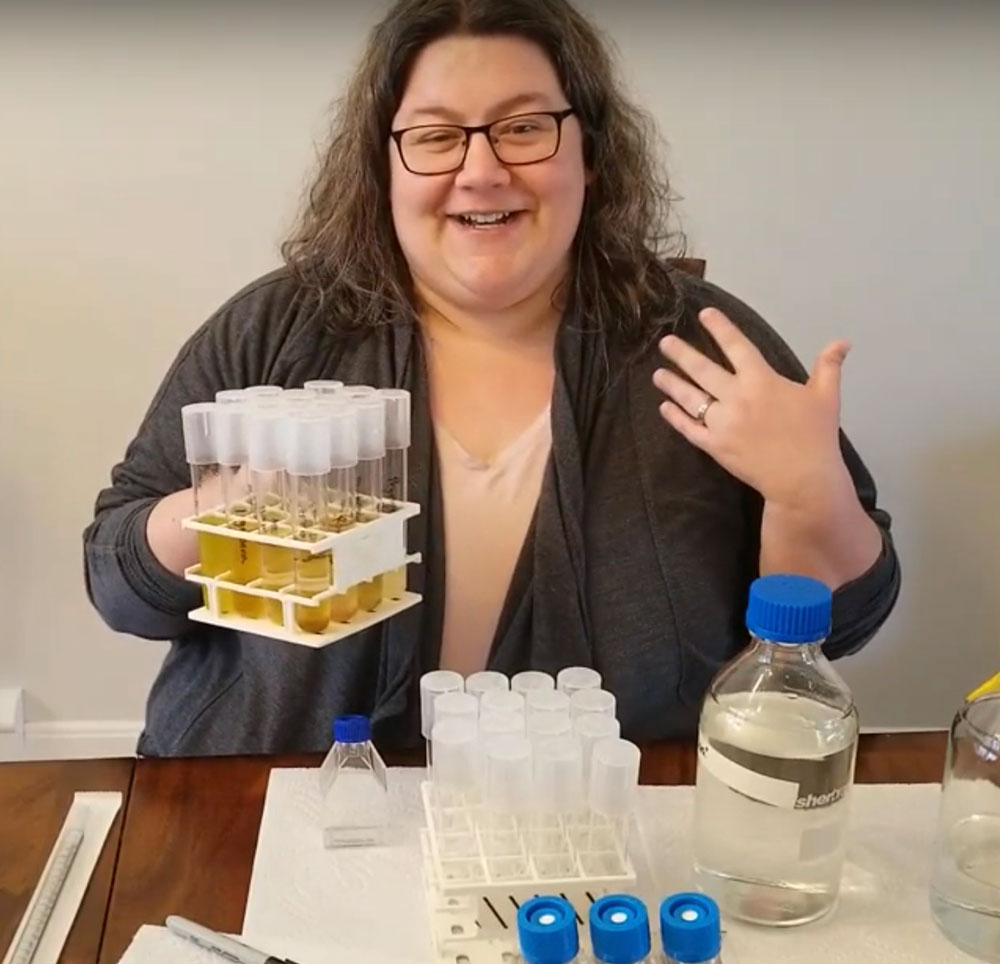
Liz Harvey
Before she shuttered her lab in March, Liz Harvey, assistant professor of biological sciences, brought her collection of research phytoplankton — single-celled ocean plants that form the base of the marine food web — and some essential supplies home to keep them alive. “Every two weeks, at my dining room table, I put some new phytoplankton in seawater, put some nutrients in to help them grow, and set them in the window of my foyer,” she says. She documented her efforts and shared details of her research in a YouTube video.
The research team of TILDE (Transformational Inquiry in Literacy and Digital Environments During COVID-19), a project that is investigating how New Hampshire educators transitioned to remote learning, includes six pandemic-weary K-12 teachers. After the teachers endured months of Zoom research team meetings on top of their own disrupted teaching duties, the UNH researchers, led by associate professor of English Alecia Magnifico and research assistant professor of education Bethany Silva, decided a pick-me-up was in order. “So we made care packages — Alecia makes the best crème caramels you have ever tasted in your life and I had my kids make homemade lip balm — and we drove all over the state hand-delivering them,” says Silva. “The people on our team have been so generous with their time. Teachers are amazing.”
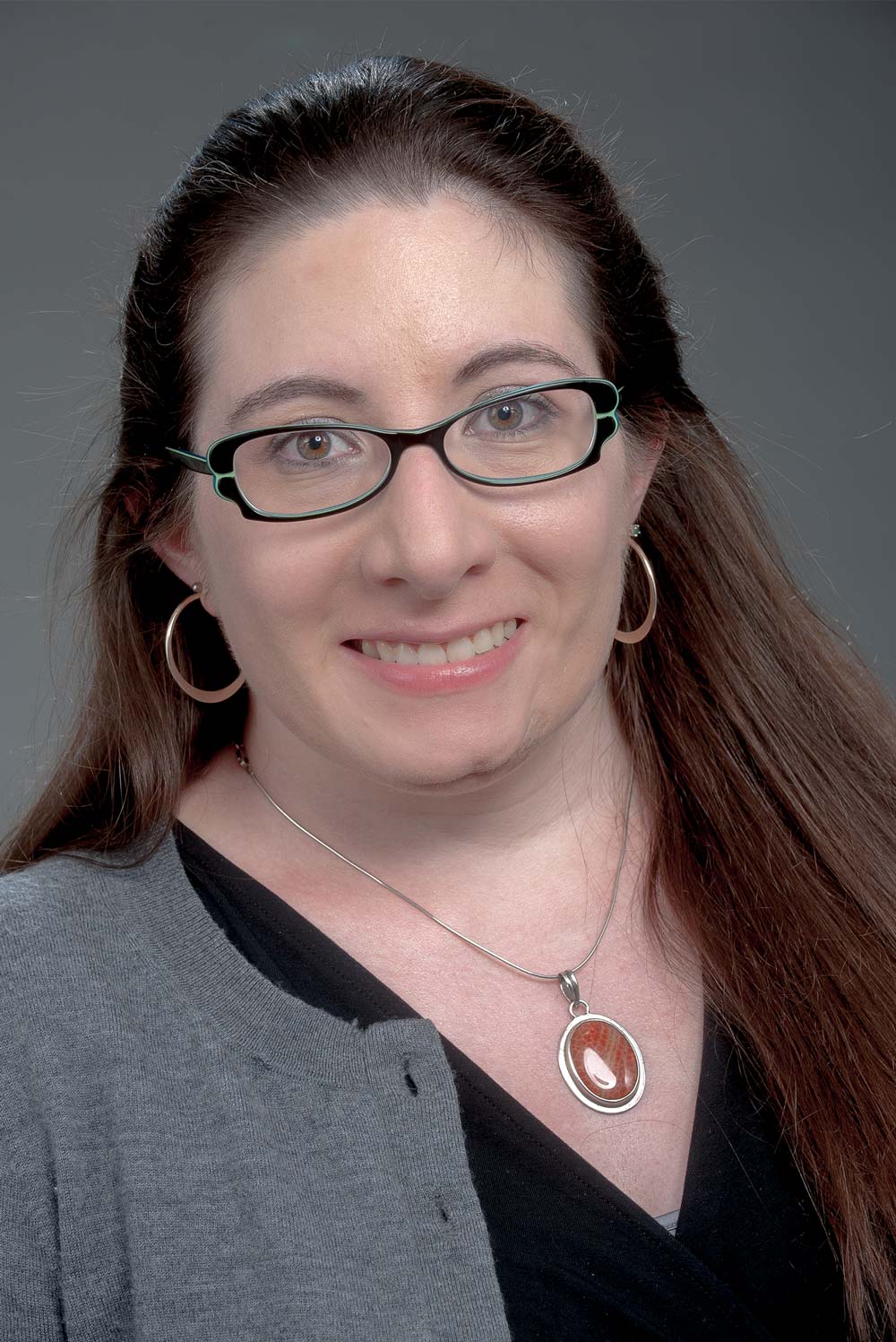
Alecia Magnifico

Bethany Silva
For some researchers, a COVID hack triggered a welcome improvement. In two of his classes, Kevin Healey, associate professor of communication, uses a nature-based contemplative photography exercise in UNH’s College Woods to encourage mindful consumption of global news. After campus shut down in the spring, he adapted the exercise using Google Earth and ArcGIS maps so students could participate in nature local to them; his invention will be published in a forthcoming book chapter. And firefighters nationwide could benefit from clinical associate professor of kinesiology Deborah Feairheller’s COVID pivot. Her American Heart Association-funded research on exercise and nutrition interventions to reduce cardiovascular disease among firefighters moved to telehealth so successfully that she and 10 undergraduate exercise science students are now conducting clinical trials to assess the effectiveness of delivering this intervention remotely. “This could really have a large impact on the fire service,” says Feairheller, herself a volunteer firefighter. “The lack of financial support in many firehouses across the company is a large barrier for implementing fitness programs, which are vital to saving lives.”
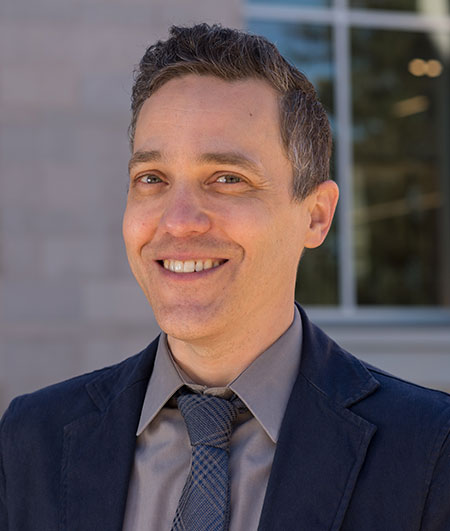
Kevin Healey
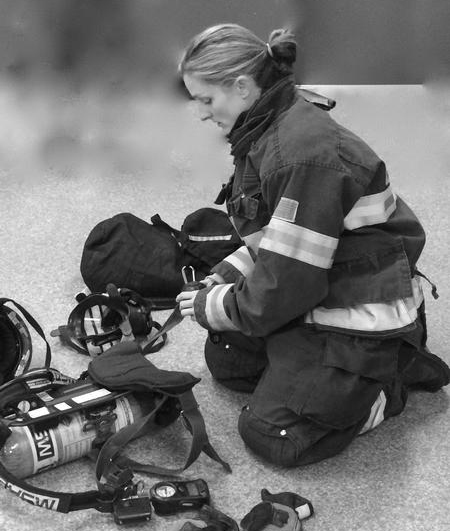
Deborah Feairheller
Photo by Joe Edwards, East Brandywine Fire Company